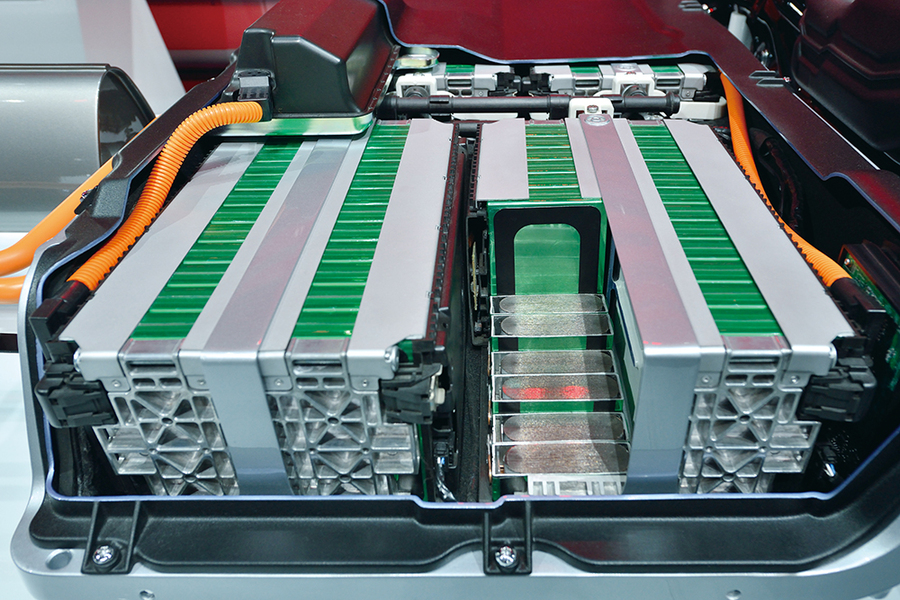Recycling and storing EV batteries will be a ‘huge issue’
3 min read
Gov. Gretchen Whitmer wants to spend $60 million on electric vehicles (EV), including electrifying the state’s fleet. However, the production of EVs is beset by a supply chain riddled with shortages in addition to environmental concerns.
Whitmer’s proposed 2023 budget aims to spend $50 million to subsidize new EV sales or a $500 rebate for at-home charging equipment for new or used EVs. Another $10 million would start converting Michigan’s roughly 13,637-vehicle fleet to EV.
Most Michiganders don’t drive EVs. The Secretary of State’s office counts among registered vehicles in the state: 5.8 million gas vehicles; 13,545 EVs; and 105,651 hybrid vehicles.
With new technology comes new challenges, including the environmental cost of extracting rare earth minerals from developing nations and storing old recycled batteries. A study published in Science Advances says global demands for lithium and cobalt, essential to EV batteries, are expected to increase around 10-fold from 2018 to 2030, surpassing current supply.
Study author Fengqi You said researchers should design batteries for sustainability. Moreover, researchers should consider environmental and economic tradeoffs in manufacturing, using and recycling batteries.
“What to do with all these retired electric vehicle batteries is going to be a huge issue,” You wrote.
The analysis found that the carbon footprint of a lithium-ion EV battery can be reduced by up to 17% if reused before recycled. For example, batteries with reduced energy storage capacity can store wind and solar energy.
Researchers estimate the demand of facilities to recycle lithium-ion EV batteries and extract raw materials currently outpaces supply, and will only grow in coming years.
“Lithium-ion batteries are designed today for performance and not for recycling or second life,” You wrote, adding that the batteries usually last about 12 years before losing the capacity to power a vehicle.
“There’s very little discussion right now about the environmental dimensions of improving battery design for recycling or reuse,” You wrote.
However, auto companies are heavily investing in battery solutions that also drive down cost. Assuming an average EV cost of $60,000 per Kelley Blue Book, $10 million would only buy Michigan’s fleet about 166 EVs, compared to buying 400 internal combustion engine vehicles at a cost of $25,000 each.
A new Honda and General Motors collaboration promised to release EVs priced around $30,000.
Whitmer has championed EVs as environmentally friendly. Some experts disagree, citing environmental harm in developing nations where rare earth minerals are mined.
This month, Rivian Automotive CEO RJ Scaringe warned reporters of a potentially looming shortage of raw materials essential to manufacturing EV batteries, which he added could be a more significant problem than the current computer-chip shortage.
“Put very simply, all the world’s cell production combined represents well under 10% of what we will need in 10 years,” Scaringe said last week, according to the Wall Street Journal. “Meaning, 90% to 95% of the supply chain does not exist,” he added.
The world’s top lithium producers are South America, where Argentina and Chile provide 93% of U.S. lithium. Amnesty International reports thousands of child laborers mine the cobalt necessary for lithium batteries. Additionally, a Guardian report noted that children as young as six work in the mines.
This article was originally posted on Recycling and storing EV batteries will be a ‘huge issue’





